Environment
-
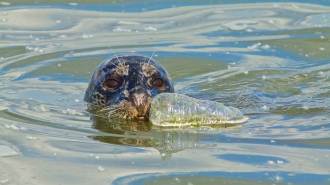 Oceans
Oceans50 years ago, scientists discovered the Great Pacific Garbage Patch
In 1973, plastic bottles adrift in the North Pacific alarmed scientists. Fifty years later, more than 1.8 trillion pieces of plastic litter the area.
By Demian Perry -
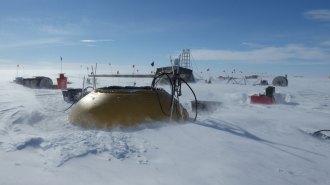 Climate
ClimateRapid melting is eroding vulnerable cracks in Thwaites Glacier’s underbelly
Thwaites is melting slower than thought, but the worst of it is concentrated in underbelly cracks, threatening the Antarctica glacier’s stability.
By Douglas Fox -
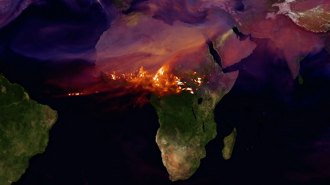 Climate
ClimateClimate ‘teleconnections’ may link droughts and fires across continents
Far-reaching climate patterns like the El Niño-Southern Oscillation may synchronize droughts and regulate scorching of much of Earth’s burned area.
By Nikk Ogasa -
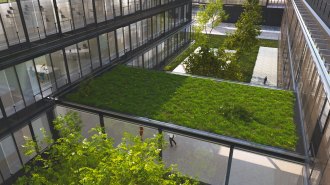 Science & Society
Science & SocietyMany plans for green infrastructure risk leaving vulnerable people out
Green infrastructure is one way to help combat climate hazards like flooding. But without equitable planning, only some communities will benefit.
By Jude Coleman -
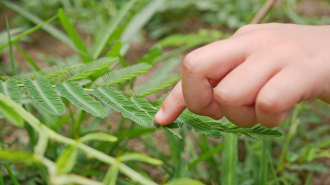 Life
LifeHow plant ‘muscles’ fold up a mimosa leaf fast
A mimosa plant revs up tiny clumps of specially shaped cells that collapse its leaflets, though why isn’t clear.
By Susan Milius -
 Life
LifeA new metric of extinction risk considers how cultures care for species
Conservation efforts should consider relationships between cultural groups and the species important to them, researchers argue.
By Jude Coleman -
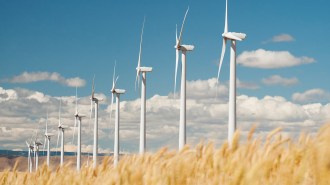 Climate
ClimateIt’s possible to reach net-zero carbon emissions. Here’s how
Cutting carbon dioxide emissions to curb climate change and reach net zero is possible but not easy.
-
 Environment
EnvironmentRecycling rare earth elements is hard. Science is trying to make it easier
As demand grows, scientists are inventing new — and greener — ways to recycle rare earth elements.
By Erin Wayman -
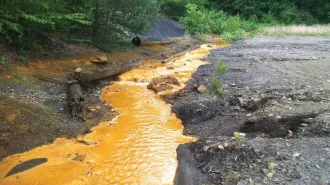 Environment
EnvironmentRare earth elements could be pulled from coal waste
The scheme would provide valuable rare earth metals and help clean up coal mining’s dirty legacy.
By Erin Wayman -
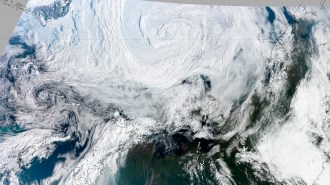 Climate
ClimateCyclones in the Arctic are becoming more intense and frequent
Over the last 70 years, boreal storms have steadily grown stronger. And climate change may make them worse, threatening both people and sea ice.
By Nikk Ogasa -
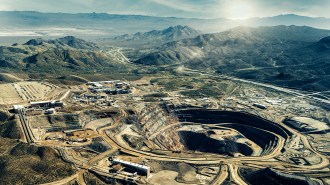 Earth
EarthRare earth mining may be key to our renewable energy future. But at what cost?
We take you inside Mountain Pass, the only rare earth mine in the United States.
-
 Climate
Climate2022’s biggest climate change bill pushes clean energy
Experts weigh in on the pros and cons of the United States’ first major climate change legislation, the Inflation Reduction Act, signed this year.
By Nikk Ogasa